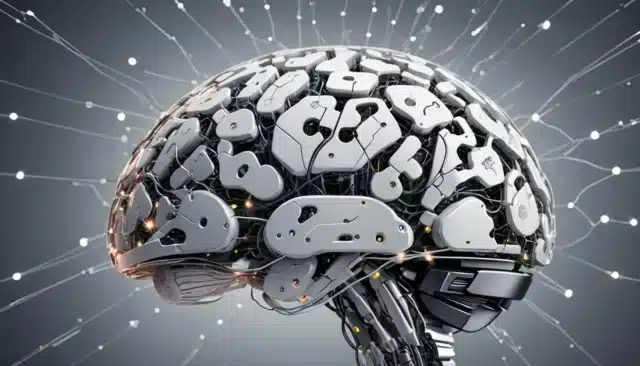It's not all artificial: The 4 types of intelligence CTOs need to get the most out of AI

Enterprises plan to spend roughly $35.5 million on IT modernization in 2024, with over a third going to AI to boost productivity. But it’s not all sunshine and rainbows. At the same time, 64 percent of IT leaders worry about rushing to adopt generative AI without understanding what's needed to use it effectively and safely. And while 75 percent of organizations have experimented with generative AI, only 9 percent have adopted the technology widely. There’s so much more potential to tap into.
To get the best out of AI to supercharge operations it all comes down to intelligence. Afterall, AI is only as intelligent as those using it. There are the four types of intelligence that CTOs need to build, and it’s nothing to do with coding or super complicated technology. It’s about cultivating soft skills and human talent to control AI in a responsible way.
Emotional intelligence: The ability to identify and manage your own emotions and the emotions of others.
While there is a lot of debate over if (and when) AI will be smart enough to outsmart people, even Elon Musk surely can’t contest the fact that emotional intelligence is one thing us humans have over AI. Recognizing and regulating one’s own emotions is crucial within any organization, and when harnessed effectively, can lead to higher employee retention and greater performance, optimism and resilience.
Emotional intelligence is important for navigating the complex interpersonal dynamics within teams and understanding the human consequences of AI adoption. To grow it, CTOs should focus on self-awareness and self-regulation -- understanding their own strengths, limitations and motivations and then being able to manage impulses as a result of this. It is also important to practice empathy, the ability to understand another person’s experiences and emotions. It helps to take a reflective approach to leadership so you can collaborate within teams, understand what they’re good at and re-define roles to solve challenges.
Social intelligence: Knowing when to listen, what to say and what to do in social situations.
CTOs with social intelligence will be able to sense how other people feel and know how to navigate the social situations they find themselves in. This doesn’t mean you must be a natural “people person” -- skills to build social intelligence can be nurtured. Learning from success and failures in social settings is all part of the process and will help any AI integration run smoothly.
Core to this is relationship-building with colleagues in order to manage working environments more effectively. This can be developed through schemes such as reverse mentoring to bridge the gap between organizational levels. Practicing active listening is also crucial. The adoption of AI is an exciting prospect for digitally literate employees, however, other individuals in the business may find it unsettling (especially given the debate around AI taking jobs). Active listening will help to understand the worries that people have and so CTOs can identify areas that require additional support and training.
Diverse intelligence: Having a diverse team of backgrounds, skills and ages.
There are serious ethical factors to consider when incorporating AI into an organization, with increasing concern about its potential harms and biases. Diversity within teams is therefore essential for promoting more ethical behaviors. That means people from different socio-economic backgrounds, races, genders, ages and more, as well as skills. This way, you also have diversity of thought; teams can draw on a wider range of experiences to develop with new ideas about how to use AI. Not only is this a good ethical decision, but a good business one. Companies committed to diversity show 39 percent increased likelihood of outperformance compared to others.
This all starts with the hiring process. CTOs should work with HR teams and fellow C-suite members to review job requirements -- and in some cases relax them to get a larger eligible pool of candidates. You should also diversify your interview panels. Hiring managers tend to hire people who look like them, so this eliminates unconscious bias.
Data intelligence: Knowing the who, what, where and when of any given data asset.
Bias (whether conscious and unconscious) is a challenge inherent in human decision-making, so, your AI is only as good as the data you feed it. Having a diverse term and being aware of bias is half the battle, but CTOs need to have a full understanding of the information they collect, store, and use to be confident in the decisions they make.
That said, CTOs need to promote a data-first culture within organizations. Without data intelligence, the sheer volume and complexity of information makes it difficult to gain meaningful insights to drive ethical business decisions. Here, there are hard skills you should leverage like data collection -- choosing relevant data from various sources and consolidating it; data preparation -- cleaning and organizing the data so it is suitable for analysis; and data analysis -- applying mathematical models to identify trends and patterns. But ultimately, without soft skills and promoting ethical behaviors needed for managing biases, you can’t ensure the equitable deployment of AI.
With Gartner predicting that 80 percent of enterprise organizations will have adopted Gen AI by 2026, the role of the CTO has never been more important. It’s crucial that in junction with the wider C-suite, they promote ethical and purposeful work for all. By focusing on these four types of human intelligence, CTOs can get the most out of AI while leading with empathy, innovating responsibly, and creating a future where technology enhances human potential.
Dr Jonathan Costa, Head of BSc in AI & Sustainable Technologies at Tomorrow University of Applied Sciences